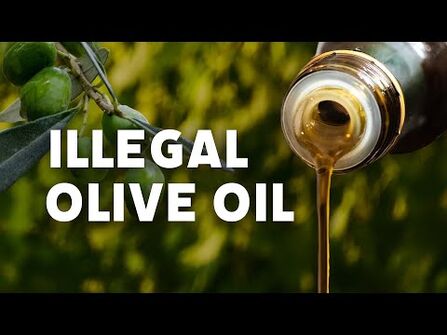
In law, fraud is intentional deception to secure unfair or unlawful gain, or to deprive a victim of a legal right. Fraud can violate civil law (i.e., a fraud victim may sue the fraud perpetrator to avoid the fraud or recover monetary compensation), a criminal law (i.e., a fraud perpetrator may be prosecuted and imprisoned by governmental authorities), or it may cause no loss of money, property or legal right but still be an element of another civil or criminal wrong. The purpose of fraud may be monetary gain or other benefits, for example by obtaining a passport, travel document, or driver's license, or mortgage fraud, where the perpetrator may attempt to qualify for a mortgage by way of false statements.
Countries like Nigeria are commonly thought of as being centers of frauds, due to the number of phone and email scams purporting to originate from there. In fact, most are not from Nigeria, but still use the known markers of scam behavior: bad spelling and the Nigerian prince, because it selects out anyone smart enough to notice those red flags. Only very gullible and susceptible people are left to the scammers, who are actually Russian or Floridian or something.
Shady dealings run amok in sunny South Florida where creative crooks are coming up with scams of every sort, from fake Jamaican lotteries to basic identity theft. The three-most populous counties in southern Florida, Miami-Dade, Broward and Palm Beach, are rife with underhanded deals that steal millions from governments, banks and individuals, reports the Associated Press.
Florida ranks No. 1 in identity theft complaints, which were at about 193 per 100,000 residents in 2013, according to the Federal Trade Commission. Bring that down to the local Miami level and it’s even worse: 340 complaints per 100,000 residents over the same time period. South Florida also logs more than 46 times the national average for false federal income tax returns, according to the Treasury Department.
Animal Fraud[]

Chinese zoo tries to pass off dog as 'African Lion'
Pet scam criminals often use free websites, Craig’s List, local newspapers, or Facebook to advertise pets that do not exist. Expensive animals, like Bulldogs or toy breeds, are offered at very low prices. Animals are offered up for adoption at no cost—all you have to do is pay for the shipping. If you see an ad like this, chances are it is a scam.
These scammers are criminals. Their goal is to take your money. They will lie, they will tell you sob stories, they will send you pictures of adorable animals, they will assure you of their faith and religion - anything to get your money! They use the names of legitimate pet shippers; they pirate websites; they illegally use logos of other companies. If you see an offer that is too good to be true, it probably is.
As of 2019, there are 31 states with what can be termed true bans on the fraudulent representation of pets as service animals. Five other states have related laws (totaling 36 states for all laws) that criminalize some aspect of service animal fraud. Kentucky, North Dakota, South Dakota, Oklahoma, and Tennessee recently enacted laws that makes it a crime to provide fraudulent disability documentation that states a service or assistance animal is required in housing. In addition to a new fraud law, Arizona makes it a petty offense (up to a $50 fine) to falsely license a pet as a service animal. In Nebraska, "[a] person commits unlawfully using a white cane or guide dog if he is not blind as defined by law and carries, displays, or otherwise makes use of a white cane or guide dog." Violation is a Class III misdemeanor. The laws in some of these states also prohibit knowingly and intentionally misrepresenting facts to a health care provider for the purpose of obtaining documentation for a service animal. In all states, violation of these laws are misdemeanor offenses or civil infractions.
Dog Fraud[]
One very old dog fraud scam is to sell puppies of one breed as another, presumably more valuable or desired breed. One can even substitute an entirely different animal. There are even fraudulent zoos that misrepresent the animals they have, their health or safety, or other deceptive animal-related practices.
A zoo in China is facing an uproar of criticism this week, after it was revealed that its African lion is in fact a dog. The zoo, located in the People's Park of Luohe in the province of Henan, reportedly tried to disguise a Tibetan mastiff as a big cat, putting it on display in a cage marked "African lion", according to AFP. The Tibetan mastiff is a large, long-haired dog with a slightly lion-like mane, but the zoo's charade was exposed after visitors heard the animal bark.
According to the People's Daily, the zoo also tried to replace other exotic animals with even less congruous substitutes. The snake cage, for instance, contained two large rats and exactly zero snakes, while a leopard cage reportedly included fox-like creatures.
But visitors who paid the zoo's $2.45 admission fee feel they've been duped. "The zoo is absolutely cheating us," one woman told the Beijing Youth Daily. "They are trying to disguise the dogs as lions."
Other forms of fraudulent dog activity includes all puppy mills (also known as puppy mill scams), dog-fighting, and dog-farming, which is also a form a Food Fraud.
Food Fraud[]

We committed olive oil fraud
Food fraud is the act of purposely altering, misrepresenting, mislabeling, substituting or tampering with any food product at any point along the farm–to–table food supply–chain. Fraud can occur in the raw material, in an ingredient, in the final product or in the food’s packaging.
Fraudulent and intentional substitution, dilution or addition to a raw material or food product, or misrepresentation of the material or product for financial gain (by increasing its apparent value or reducing its cost of production) or to cause harm to others (by malicious contamination), is ‘food fraud.’
Food fraud is the deception of consumers through intentional adulteration of food: (a) by substituting one product for another; (b) using unapproved enhancements or additives; (c) misrepresenting something (e.g., country of origin); (d) misbranding or counterfeiting; (e) stolen food shipments and/or (f) intentional contamination with a variety of chemicals, biological agents or other substances harmful to private– or public–health.
Since the 13th century during the reign of King John, England has had food fraud laws against diluting wine with water, adding ash to pepper, and packing flour with chalk. Food fraud and adulteration were first addressed in the USA by food laws––as far back as 1784. FDA, in the 19th century, began protecting consumers from snake oil salesman and other charlatans that preyed on the susceptible public with their alchemy–spiked tonic and elixirs. To help counter this now, the FDA has several hundred agents deployed worldwide as part of its chemical investigations division to investigate food fraud.

The "natural" label on your food is baloney
The Top Ten most adulterated foods in the United States in 2013 were: (1) olive oil, (2) milk, (3) honey, (4) saffron, (5) orange juice, (6) coffee, (7) apple juice, (8) grape wine, (9 tie) vanilla extract, (9 tie) maple syrup. For consumers who cook with olive oil, the food safety threat is tremendous. That’s because olive oil is often diluted with peanut oil; if a consumer has a peanut allergy, it becomes a very serious––even life–threatening situation. By the time food adulteration is uncovered, the health effects––in the form of a severe allergic reaction or organ failure––has already taken place.
Economically motivated adulteration (EMA) can result in public health consequences: (a) melamine in dairy products (China)––hundreds of thousands of illnesses and at least 6 infant deaths, (b) industrial–grade rapeseed oil, sold as olive oil (Spain)––20,000 illnesses and at least 300 deaths, and (c) mislabeled fish could have come from polluted water; if eaten by pregnant woman, mercury or cadmium could affect health of an unborn child.
A firestorm of cases involving food–fraud, stoked by greed and economical gains is growing by the year both domestically and worldwide. For example:
- China (2008) melamine in baby food; (2015) ‘zombie’ frozen meat
- Russia (2015) palm oil in milk
- Italy (2011) illegal organic produce; (2014) hydrogen peroxide on seafood
- England (2013) beef burgers containing pork and horsemeat
- Australia (2013) free–range eggs from caged hens
- Mexico (2005–present) meat from undeclared species
- USA (2009–present) Salmonella in peanuts, honey–laundering, meat from undeclared species
Some food–fraud experts say that the best way to prevent adulteration is for food industry employees to speak up when they see wrong–doing. NSF International recommends encouraging whistle–blowing by company employees based on a COSO study indicating that ‘a tip’ was the most successful source of initially detecting occupational fraud.
Stewart Parnell (Peanut Corporation of America) was sentenced to 28 years in prison based on a felony––’Intent to defraud based on emails and fabricated certificates of analysis of his peanut product shipments.’ The sentence was historic, marking the first sentence of significant jail time for causing foodborne illness. US prosecutors have won convictions in 4 other foodborne outbreak cases in the last 3 years (e.g., the DeCosters and the Jensens).
The South Side Fake Burger King is an example of a fraudulent fast food location.
Food Terrorism[]
Examples of malicious intentional adulteration include: September 1984––A religious sect intent on disrupting local elections in The Dalles, Oregon contaminated restaurant salad bars, creating ‘a large community outbreak of Salmonellosis; September 2002––a snack–bar owner in Nanjing China spread lethal rat poison into the food of his business rival, killing 38 people and leaving hundreds seriously ill; May 2016––Kyle Bessemer, in Michigan, sprayed mouse poison on food in snack bars.
Meat Fraud[]

Bob Is Forced To Wear A Wire In Order To Save His Restaurant - Season 7 Ep. 4 - BOB'S BURGERS
The regulation states ‘Do not include horsemeat for beef. Fraudulent blending of food products with meats from undeclared species: (a) is a problem on a global scale, as exemplified by the European horsemeat scandal in 2013, (b) affects consumer rights from the economic point of view, and (c) might be a significant problem for people with ethical or religious concerns regarding the consumption of meat from species such as horse or pork.
In the late 1970s, a well–known case of ‘meat–species substitution fraud’ involved representation of kangaroo meat and horsemeat as frozen beef trimmings. Purchased from an Australian meat broker, it was used by grinders to produce ‘ground beef’ patties for a fast–food franchise operation. In 2011, a suit was filed in a state district court, by a private citizen, against another quick–service operator, claiming that the company’s Mexican–style foods did not contain ‘enough beef.’ In both cases, a qualitative and quantitative analysis system (i.e., ELISA) was used to speciate the meat samples with a level of detection down to 0.5% of the matrix. Since then, new analytical systems (using combinations of DNA barcoding, PCR, HPLC and/or MS) have been developed with a level of detection down to 0.1% of the matrix. One of the world’s largest beef–burger restaurant chains recently reported it requires grinders to randomly sample and perform meat speciation tests of incoming raw materials throughout its global supply–chain.
Chapman University in California tested ground meat and exotic–game meats for presence of beef, chicken, lamb, turkey, pork and horsemeat and reported that: (a) 38 of 48 ground meat samples were labeled correctly, (b) 1 sample was mislabeled in its entirety and 9 samples contained additional species. (c) meat from online distributors, local butchers and supermarkets, respectively, was mislabeled 35%, 18% and 6% of the time, and (d) exotic–game meat from online distributors was mislabeled 18.5% of the time. The researchers concluded that, although mislabeling could have occurred from cross–contamination in facilities that process meat from multiple species, over half of species substitutions may have been economically motivated.
Midamar Corporation and Islamic Services of America have been ordered to forfeit $600,000 in the US District Court. Three defendants––William, Jalel and Yahya Aossey admitted to a scheme involving falsification of export certificates to ship Halal beef to customers in Malaysia and Indonesia. They face up to 5 years in jail plus a $250,000 fine for a felony conspiracy violation plus 1 year and $100,000 for each misdemeanor charge.
Cheese Fraud[]
Six people were arrested in 2015; officers accused them of making cheese with a banned curdling agent. The amount of cheese seized was 30 million dollars, or 27 million euros. Russia banned the import of some Western foods and ingredients in retaliation to sanctions over the annexation of Crimea. President Vladimir Putin signed a decree that food breaching Moscow’s own sanctions must be destroyed, despite the millions starving in his own country.
The United States is currently in the midst of a cheese surplus, though this was impacted by the vaccine needs for COVID-19. This all created a highly volatile and inflated cheese market.
Cheese smuggling and piracy have resulted, a black market for cheesy comestibles:

Cheese Heist Caught on Camera
2016: Germantown, Wisconsin[]
An estimated $70,000 worth of cheese stolen
2016: Marshfield, Wisconsin[]
$90,000 worth of Parmesan cheese—about 41,000 pounds
2015: Goux-les-Usiers, France[]
$43,000. It doesn’t appear that the cheese was ever recovered
2015: Modena, Italy[]
$875,000 worth of Parmesan cheese.
2015: Lakeland, Florida[]
$85,000 worth of shredded mozzarella cheese
Political Fraud[]
Republicans are always screaming about voter fraud, but upon close inspection, there is not a significant amount of voter fraud cases, and those that do exist are most often perpetrated by Republicans. What does exist, is a political sham and form of fraud on the American people to demonize voting and put the truth of election integrity into doubt for nefarious purposes.
In 2012, the Florida Republican Party was embroiled in a voter fraud scandal, putting hundreds of voter registration forms in about 10 counties in question. Apparently, a GOP-back political consulting group submitted fraudulent voter registration forms all over the state. The group, Strategic Allied Consultants, claimed the problem stemmed from one individual who was fired last month.
Nathan Sproul, “worked for a string of Republican presidential campaigns, including Mitt Romney … [and] he was recommended to the Florida GOP by the National Republican Committee.”
“Until being fired Tuesday, Sproul’s company had received $1.3 million from Republicans, including nearly $700,000 from the Florida Republican Party,” the Monitor reported.
Right now, it’s unclear how many fake voter registration forms were submitted to election officials, but there are reports that hundreds of them were submitted to the Florida Department of State.
